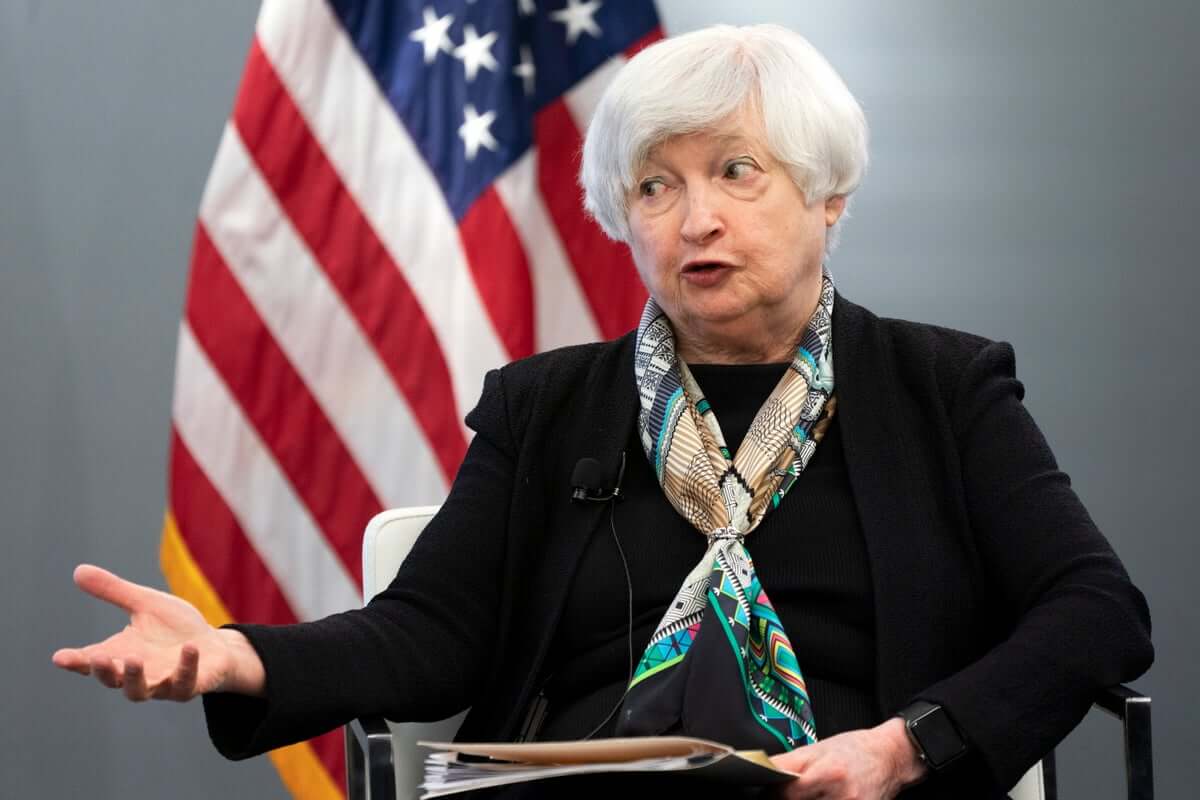On Wednesday, high-ranking government officials and central bank governors from the United States (US), Canada, and the United Kingdom (UK) staged a walkout at the G20 meeting in Washington after Russian Finance Minister Anton Siluanov commenced his speech.
The G20 boycott was led by US Secretary of the Treasury Janet Yellen, who was accompanied by her counterparts from Canada and the UK along with other officials from Germany, France, and the Netherlands. A delegation from Ukraine attended the meeting and participated in the walkout as well, even though Kyiv is not a part of the G20. However, some of Russia’s allies, including China, India, and South Africa, did not participate in the boycott, indicating the continued rift among members of the international economic forum.
The world’s democracies will not stand idly by in the face of continued Russian aggression and war crimes. Today Canada and a number of our democratic partners walked out of the G20 plenary when Russia sought to intervene. pic.twitter.com/J67gU810sO
— Chrystia Freeland (@cafreeland) April 20, 2022
In a statement, Yellen affirmed that the US is “in the strongest terms” against Russia’s “illegal, unprovoked war” in Ukraine, which will soon hit the two month mark. Her statement also called for international financial institutions such as the International Monetary Fund (IMF) and World Bank to prepare for a period of “deepening food insecurity” prompted by the Ukraine war. In this regard, Yellen urged international organisations to support low-income countries during the imminent food and energy shocks. Yellen also covered other pressing issues such as COVID-19 recovery and fossil fuel reliance.
In a similar vein, Canadian Deputy Prime Minister and Minister of Finance Chrystia Freeland, who is of Ukrainian descent, asserted, “The world’s democracies will not stand idly by in the face of continued Russian aggression and war crimes.” British Chancellor of the Exchequer Rishi Sunak reiterated the points made by his American and Canadian counterparts, adding that the Western countries will “push for stronger international coordination to punish Russia.”
Earlier my representatives, along with US & Canadian counterparts left today’s G20 meeting in Washington as Russian delegates spoke.
— Rishi Sunak (@RishiSunak) April 20, 2022
We are united in our condemnation of Russia’s war against Ukraine and will push for stronger international coordination to punish Russia. https://t.co/XxmscvRrRt
Similarly, French Minister of the Economy and Finance Bruno Le Maire noted that Russia’s war is “not compatible” with cooperation in international forums, such as the G20.
Meanwhile, although the German Minister of Finance Christian Lindner took part in the condemnation of Russia, he also emphasised the need to find common ground. Lindner has repeatedly said that Germany is firmly against imposing an oil embargo against Russia as it would not be able to withstand the economic impact. Furthermore, on Tuesday, Chancellor Olaf Scholz said that Germany can no longer provide any more military support to Ukraine as it has exhausted its own reserves.
Ukraine has criticised Scholz for his “weak response to the [Ukraine] crisis” and even allegedly refused a visit by President Frank-Walter Steinmeier to Kyiv, saying he is “not welcome.” On Wednesday, however, Germany appeared to take notice of the mounting criticism against the Scholz administration, as Foreign Minister Annalena Baerbock announced that Germany will halve its Russian oil imports by the summer and “be at 0 by the end of the year.” She noted that “gas will follow” but did not offer further detail.
Meanwhile, Russian Finance Minister Anton Siluanov refused to acknowledge the mass walkout during his speech and instead urged Western nations to refrain from politicising the forum. “The G20 has always been and remains an economic format,” said Siluanov. Regarding the forthcoming rises in agricultural and energy products, he remarked, “We [Russia] never refused to honour our obligations,” possibly blaming the rising prices on the US-led Western sanctions.
💬#Zakharova: We consider #G20 dialogue as an intellectual process rather than a Cold War confrontation.
— MFA Russia 🇷🇺 (@mfa_russia) April 20, 2022
🇷🇺🤝🇨🇳 We appreciate our mutual solidarity and close coordination with China within the G20 in the interests of seeking balanced agreements. pic.twitter.com/NuVFFUyHUl
Experts suggest that the increasing divisions within the G20 make it difficult for the group to reach a common consensus on pressing global issues, such as the climate crisis and food shortages. Nevertheless, Western leaders did not address calls for Russia’s complete expulsion from the G20, something that appears to be unlikely, given the presumed opposition such a move would face from India, China, South Africa, and Indonesia. That being said, Moscow was suspended from the Group of Seven (G7) (then G8) over its invasion of Crimea in 2014.
The G20 is a coalition of the world’s 19 largest economies and the European Union (EU), which together account for 75–80% of international trade. Currently chaired by Indonesia, the forum addresses issues of global importance.

